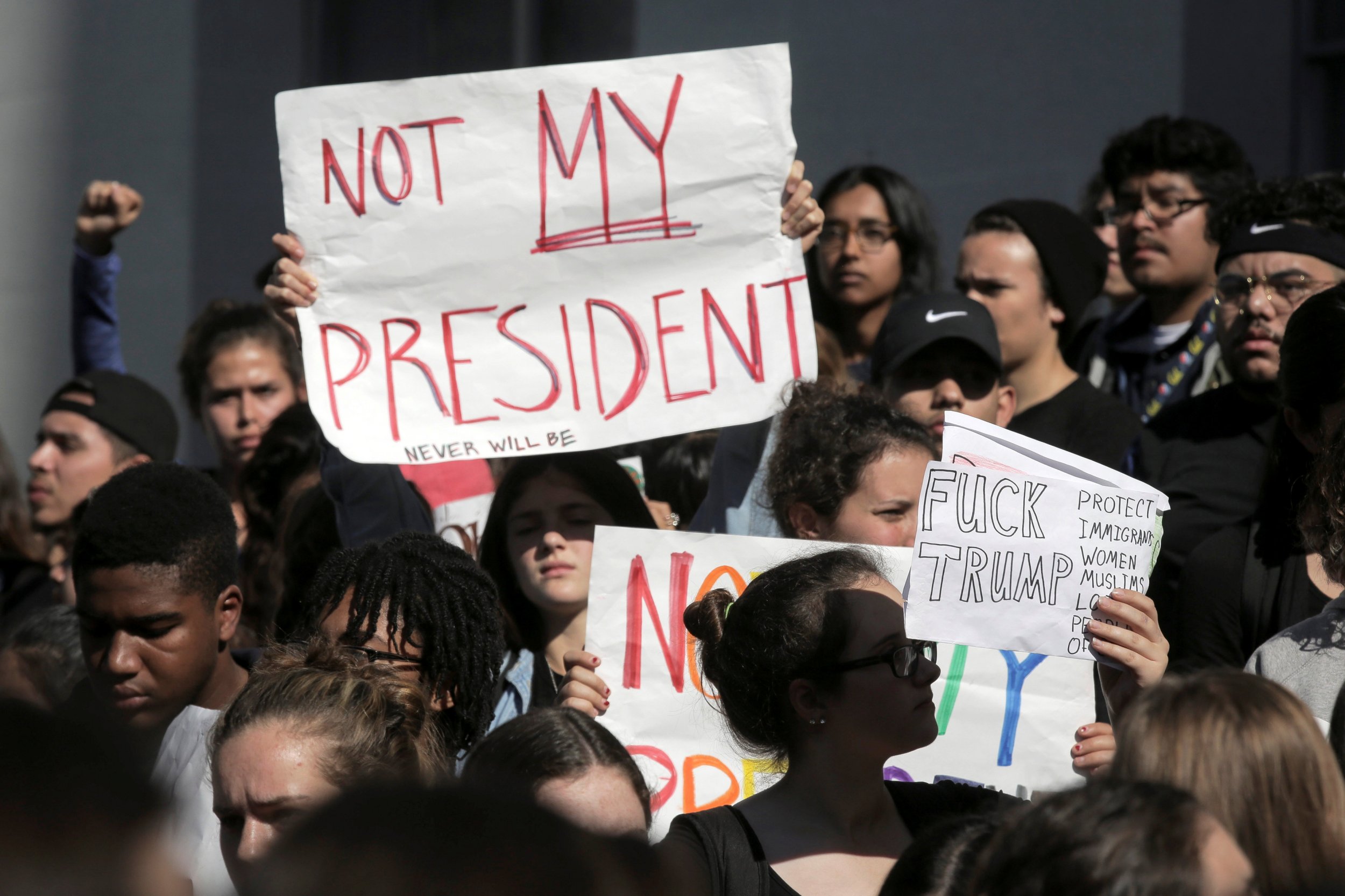
There were nearly 900 reports of hate incidents in the 10 days after the 2016 U.S. presidential election, and schools across the country reported an uptick in violence, derogatory comments and verbal harassment, according to a new study from the Southern Poverty Law Center.
The Montgomery, Alabama-based organization, known for tracking hate incidents and groups across the country, said that 867 hate incidents involving harassment and intimidation took place in the 10 days after the election, with many culprits reportedly invoking Trump's name. California saw the largest number of crimes, 99, followed by New York, with 69. On the other hand, no hate incidents were reported in Hawaii, Wyoming, North Dakota or South Dakota.
The details of several incidents are included in the report. A Los Angeles woman said a man told her he was "gonna beat [her] pussy"; an Asian-American woman was told to "go home" when she left an Oakland train station; and a black man said his apartment was vandalized with a derogatory word referring to his race. The majority of the incidents took place in public spaces, including K-12 schools and workplace or retail settings. Anti-immigrant and anti-black acts were the most widely reported hate incidents, and Muslim women who wear hijabs "have been particularly vulnerable to threats and assault," according to the report.
While the numbers of daily hate incidents have dropped since the 202 that were reported on November 9, the day after the election, there were 26 reported on November 18. Of the 867 hate incidents recorded by the Southern Poverty Law Center, 23 were directed at Trump supporters. A man riding the subway in New York while wearing a "Make America Great Again" hat was grabbed around the neck, according to the report.
On Monday, the Southern Poverty Law Center released a separate report that surveyed more than 10,000 teachers, counselors and other staff at K-12 schools. They described a deterioration in the school climate after the election that was dubbed the "Trump effect." Nine out of ten educators said there has been a negative effect on students' behavior, while 80 percent of respondents said that marginalized students, including LGBT, Muslim and immigrant students, have heightened anxiety. Four out of ten respondents say they've heard derogatory language directed at marginalized students and students of color since the election.
Among the incidents reported by teachers are sexist, xenophobic and racist remarks or actions. One middle school teacher in Indiana said she has had to deal with "boys inappropriately grabbing and touching girls, even after they said no"—which, according to the teacher, "never happened until after the election"—and white students telling their friends who are Hispanic or of color "that their parents are going to be deported and that they would be thrown out of school." A middle school teacher from Washington reported a student blurting out "I hate Muslims" during a class on major religions.
"In over 15 years of teaching high school this is the first year that swastikas are appearing all over school furniture. The day after the election I overheard a student in the hall chanting, 'White power,'" said a high school teacher in Washington state. Some educators, meanwhile, said they didn't notice any change in their school's environment.
The Southern Poverty Law Center recommends that superintendents and school principals send letters to staff and families that "should affirm your school's values, set expectations about inclusion and respect, and explain your vision for the school community." The organization also says schools should have resources for marginalized students who have been particularly at-risk since the election, and should encourage staff and students to speak up if they see or hear something that is derogatory or that puts students at risk.
Uncommon Knowledge
Newsweek is committed to challenging conventional wisdom and finding connections in the search for common ground.
Newsweek is committed to challenging conventional wisdom and finding connections in the search for common ground.
About the writer
Before joining Newsweek, Lucy Westcott was an editorial fellow at The Wire. Previously a United Nations correspondent for the Inter ... Read more
To read how Newsweek uses AI as a newsroom tool, Click here.








